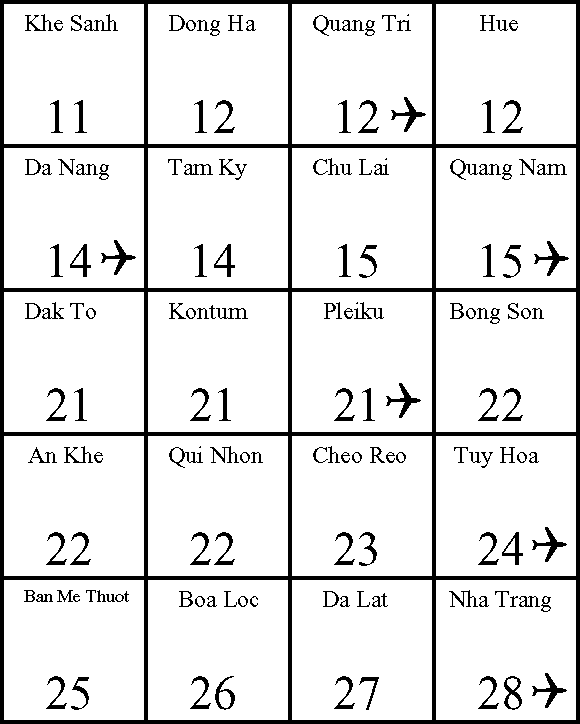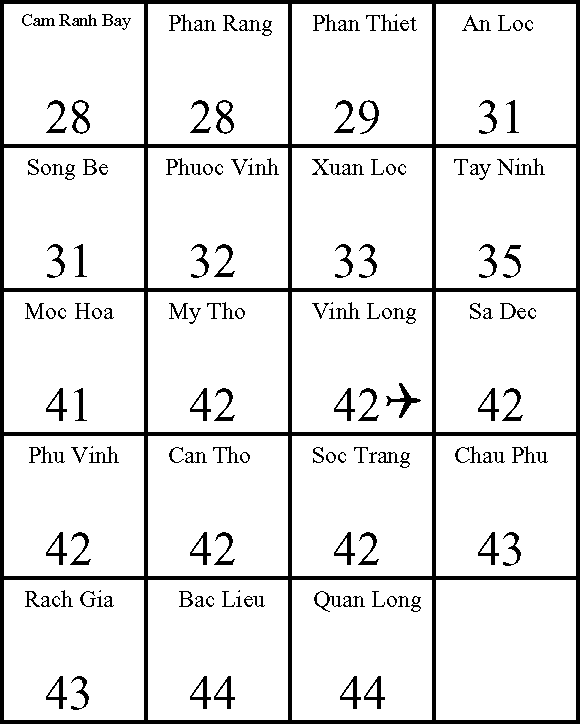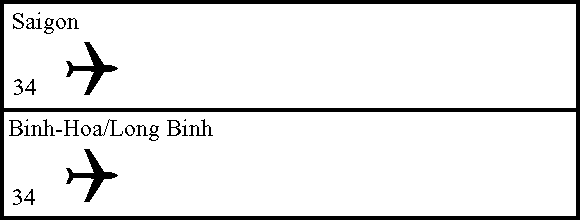Reply-To: [email protected] Subject: GDW Tet Offensive Errata Alan, As your reviewer of GDW's Tet Offensive mentioned, there are number of omissions in the game. Below is my suggested errata to correct some of the more glaring deficiencies. I also have a city sheet for keeping track of which cities have been taken by the NVA/VC and a set of off-board holding boxes for units in cities (to keep the map -clutter down, another valid point mentioned by your reviewer. --Mike Joslyn ---------------------------------- Suggested Errata For Tet Offensive by GDW PREPARING FOR PLAY (pg 14) South Vietnamese Regional/Popular Forces (Ruff-Puffs) are first turned face-down and then mixed. The South Vietnamese player places one face-down RUFF-PUFF unit on each city hex in Vietnam except for Khe Sanh. Neither side may look at face-down RUFF-PUFF units. RUFF-PUFF units are not revealed until the first time an NVA/VC unit attacks the city. RUFF-PUFF units with a strength of zero (0) are removed from the board when revealed. [Rationale]: While the rules completely omitted any mention of how the RUFF-PUFF units are initially deployed, the fact that there�s one counter for every city except one led me to conclude that they were deployed one to a city. Khe Sanh is the one exception because it was placed under siege the week before Tet. The gray counter backs and the number of RUFF-PUFFs with zero strengths caused me to assume that they were placed randomly and face-down. That way, no one would know how much government support there was among the local populace in each city until a crisis broke. REPLACEMENT PHASE (pg. 10) NVA replacements appear in North Vietnam. ALLIED AERO-MECH MOVEMENT PHASE & ALLIED SLOW REACTION (Clarification) (Pg.11 & 6) Ground units moved by Aviation unit in the Allied Aero-Mech Phase are in addition to the number of ground units which may move in the Allied Movement Phase. (In other words, they don�t count against the limits imposed by the Allied Slow Reaction Rule. A ground unit which was moved in the Aero-Mech phase, and then moves AGAIN in the Allied Movement Phase DOES count, however.) RETREAT FROM COMBAT (Suggested Change) (pg. 8) The rules limit VC/NVA retreats to adjacent sanctuaries. This means that any VC/NVA units in many coastal regions of South Vietnam (particularly in II Corps) are automatically cut off because there are no sanctuaries adjacent. Suggested change: VC/NVA units may retreat to either an adjacent sanctuary (with the usual restrictions) or, if no adjacent sanctuary exists, a VC/NVA controlled region. A VC/NVA controlled region is one in which all the cities are in insurrection and there are no South VIetnamese/American/American-Allied units present. [Rationale]: The original retreat rule flies in the face of reason. There�s no reason why, with rear areas secured, VC/NVA units would not try for a coastal region. The Pentagon always feared this, and on at least one occassion, misinterpreted NVA moves as an attempt to cut the country in half by slicing through to the coast.


